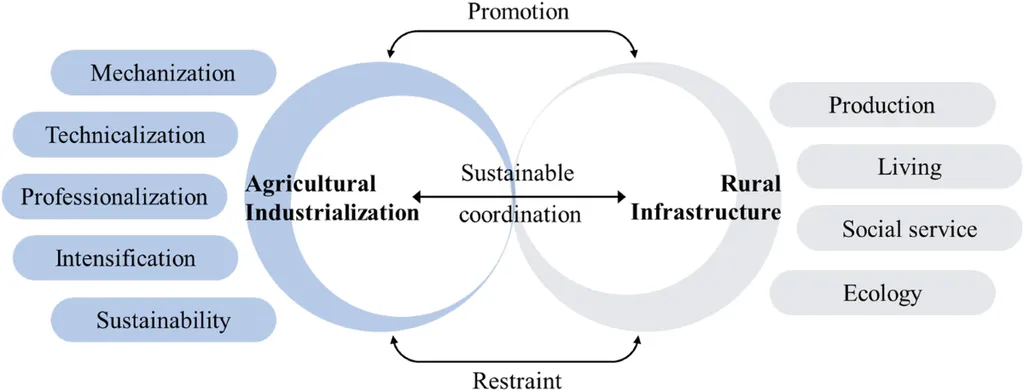In the heart of China’s agricultural landscape, a silent revolution is taking place, one that could reshape the way we think about food production, water management, and energy consumption. At the forefront of this transformation is Dr. Jin Shi, a researcher from the Institute of Environment and Sustainable Development in Agriculture at the Chinese Academy of Agricultural Sciences in Beijing. His recent study, published in the journal *Farming System* (translated from Chinese as “耕作系统”), offers a compelling vision for sustainable farming, with significant implications for the energy sector.
Dr. Shi and his team have developed a spatiotemporal footprint framework to optimize agricultural activities in China’s winter wheat systems. Their 30-year integrated assessment, spanning from 1991 to 2020, reveals that agricultural activities in this sector emitted an average of 66.6 million tons of CO2 equivalent annually and consumed a staggering 112 billion cubic meters of water each year. The Huang-Huai-Hai Plain, a critical region for winter wheat production, emerged as a hotspot for both greenhouse gas emissions and water consumption, yet it maintained relatively low product-level footprints.
The study highlights the potential for synergistic reductions in carbon and water footprints through optimized fertilizer practices. “From 2001 to 2020, we saw significant improvements in yield and efficiency,” Dr. Shi explains. “By fine-tuning fertilizer applications, we were able to achieve a delicate balance between productivity and environmental impact.”
The research delves into scenario-based mitigation strategies, offering a roadmap for the future. Substituting organic alternatives for chemical fertilizers could reduce emissions by 12%, while powering irrigation equipment with renewable energy could lower emissions by 7.0%. Improving irrigation efficiency could cut water consumption by 3%. However, the most impactful strategy combines precision fertilization and energy-efficient irrigation, potentially reducing carbon emissions by up to 20%.
For the energy sector, these findings are a clarion call. The integration of renewable energy into agricultural practices presents a substantial opportunity for growth and innovation. As Dr. Shi notes, “The energy sector has a pivotal role to play in supporting sustainable agriculture. By developing efficient, renewable-powered irrigation systems, they can help farmers reduce their carbon footprint and contribute to a more sustainable future.”
The study’s implications extend beyond China’s borders. As the global population continues to grow, the demand for food will inevitably rise. Sustainable farming practices, underpinned by advanced technologies and renewable energy, will be crucial in meeting this demand without compromising our planet’s resources.
Dr. Shi’s research is a testament to the power of interdisciplinary collaboration. By bridging the gap between agriculture, environmental science, and energy technology, he and his team have paved the way for a more sustainable future. As we stand on the precipice of a new agricultural revolution, their work serves as a guiding light, illuminating the path towards a more efficient, sustainable, and resilient food system.
In the words of Dr. Shi, “The future of agriculture lies in our ability to adapt and innovate. By embracing sustainable practices and harnessing the power of renewable energy, we can create a food system that is not only productive but also environmentally responsible.”

